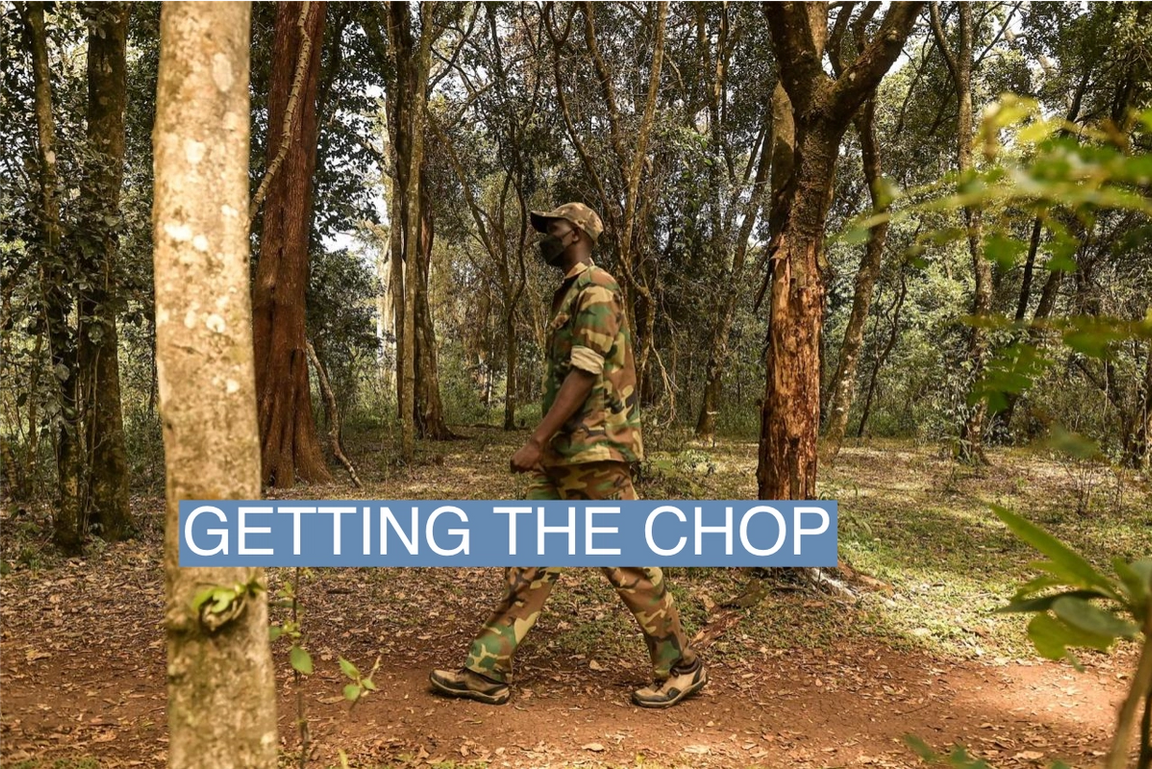 THE NEWS NAIROBI — The lifting of a six-year ban on logging in Kenya has sparked outrage and once again put a harsh spotlight on the government’s mismanagement of the country’s forests. In a speech on July 2, President Wiliam Ruto said logging would follow strict harvesting rules. But critics are concerned that the Kenya Forest Service, the agency responsible for managing public forests and issuing logging licenses, has not been reformed since being labeled “corrupt” by a government inquiry. “By lifting this ban, president Ruto has prioritized profit over people and nature,” said Greenpeace Africa’s Community Manager Tracy Makheti who, like other environmentalists, expressed alarm at the government’s new policy. Greenpeace Africa is petitioning the government to reinstate the ban. KNOW MORE The logging ban was introduced in 2018 after public outcry over shrinking water resources blamed on the destruction of water towers — mountain forests that are key sources of water. The Mau Forest in the Rift Valley was one of the most affected water towers. The National Assembly pleaded with the government to suspend logging in order to arrest the diminishing forest cover. It proposed that a ban would save the water towers. Though the effects of climate change were already a reality in Kenya with worsening droughts over the last decade, the government attributed the situation to increased deforestation in the country in its 2018-2022 climate action plan. A 2018 taskforce set up to look into the forest service found that the agency specifically “oversaw wanton destruction of forests” and “executed plunder and pillaging of water towers.” But the recommendations of the report — which included an investigation and prosecution of agency officials, constitution of a caretaker management team, and a complete overhaul of forest management practices — were never implemented. ANTHONY’S VIEW For Ruto, the lifting of the ban in order to create more jobs in a sector that employs up to 50,000 people directly and another 300,000 indirectly may have been irresistible, especially with the economy struggling. But the lifting of the logging ban has come at the wrong time. The right time would have been after the recommendations of the taskforce report had been implemented. While a new board was named with the change of government, nothing much has been done about bringing corrupt officials to book. The 2018 taskforce found that corruption in the Kenya Forest Service led to destruction of indigenous trees in many critical forest areas, the introduction of irregular settlements and large-scale public infrastructure developments. The system is still the same and the institution still has a bad reputation, not to mention a slew of human rights abuse cases facing it for the violent eviction of indigenous people. In the absence of a purge at the Kenya Forest Service, the government may be entrusting public forests to an untrustworthy and inept institution. The upside of this situation however is that the presiding cabinet secretary, Soipan Tuya is new, and the board is new. Kenya Forest Service has also stated that it has made changes in how it issues licenses to sawmillers to make it more transparent. This is an opportunity to redeem itself. Any success in spurring growth and creating employment in the timber and furniture business will be a plus for the government. The bigger picture issue concerns the potential damage to the environment. Efforts to plant trees, such as the African Union-led $8 billion Great Green Wall Initiative to restore degraded landscapes, are looking to forestation to tackle global warming. The impact of climate change is already clear from recurring droughts that have gripped Kenya and neighboring countries in recent years. The lifting of the logging ban could open the door to abuses that deepen the problems of climate change, meaning an attempt to fix short term economic problems could cause long term pain. THE VIEW FROM UGANDA Uganda has also been struggling with illegal logging with the timber being trucked across the border to Kenya which has more demand for wood than it can supply — mainly for timber, poles, firewood and charcoal. Despite the Ugandan government’s logging ban in 2017 and a ban of the charcoal trade, the government’s efforts have been unsuccessful. William Amanzuru, an environmentalist who runs an NGO called Friends of Zoka, said that the bans do not stop illegal logging, as government officials are often involved. “It is highly militarized because it is done by those who hold powerful military ranks in the Uganda People Defense Forces and also Uganda Police Force,” he said. ROOM FOR DISAGREEMENT Gerald Ngatia, the National Secretary of the National Community Forest Association is more concerned about the current high prices of timber caused by the ban. Lifting the ban, he said, was necessary to get timber and for industry locally.
“Following the lifting of the moratorium the other day, what we now need to ensure is the proper management of forests. Every forest station should have good forest management plans whereby if you are cutting a hundred, you should be able to restore the same hundred,” he said. NOTABLE - President Ruto is still positive that his plan to plant 15 billion trees by 2032 in Kenya will succeed, reported Daily Nation.
| 








